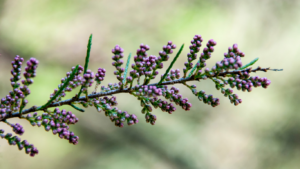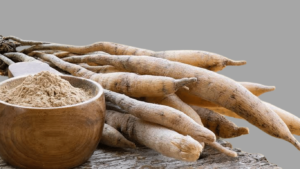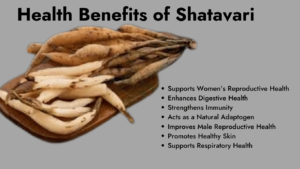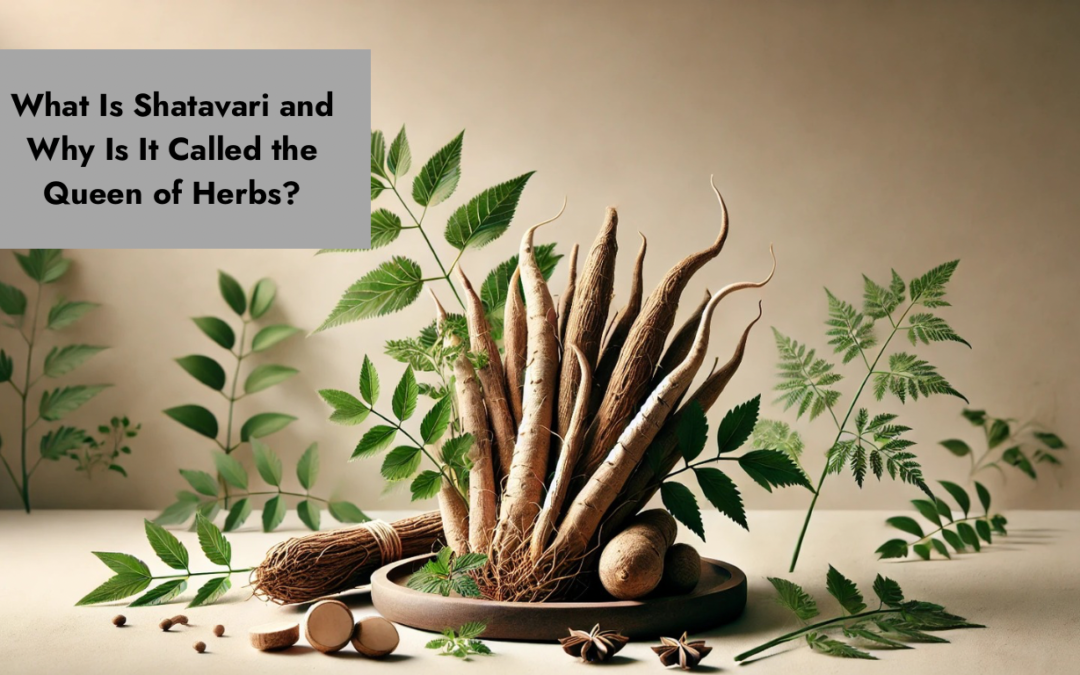Shatavari (scientific name: Asparagus racemosus) is a revered medicinal herb widely used in Ayurvedic medicine for centuries. Often referred to as the “Queen of Herbs,” Shatavari is celebrated for its incredible health benefits, especially for women’s wellness
. The name “Shatavari” translates to “one who has a hundred husbands,” symbolizing the herb’s role in promoting fertility and vitality.
This herb belongs to the Asparagus family and thrives in tropical and subtropical regions of India, Sri Lanka, and Nepal. Its climbing roots are the most valuable part, used to create powders, capsules, extracts, and teas.
Packed with bioactive compounds, Shatavari is renowned for its adaptogenic, rejuvenating, and anti-inflammatory properties, making it a cornerstone in holistic health practices.
In this blog, we’ll delve into the origins, composition, and incredible health benefits of Shatavari, exploring why it has earned its royal title as the “Queen of Herbs.”
Origins and Traditional Use

Shatavari has been mentioned in ancient Ayurvedic texts like the Charaka Samhita and Sushruta Samhita. It has long been used as a “rasayana” herb, meaning it enhances longevity, youthfulness, and vitality.
Traditionally, Shatavari was prescribed for women to support reproductive health, lactation, and hormonal balance.
However, its benefits extend beyond gender, as it is also a potent immune booster and stress reliever for men and women alike.
Nutritional and Medicinal Composition

The roots of Shatavari are rich in bioactive compounds, including:
- Saponins: These are natural glycosides with antioxidant and anti-inflammatory properties.
- Isoflavones: Plant-based compounds that mimic estrogen, aiding hormonal balance.
- Alkaloids: Known for their calming and rejuvenating effects.
- Polysaccharides: Boost immunity and promote gut health.
- Vitamins and Minerals: Contains essential nutrients like zinc, calcium, and B-complex vitamins.
This unique combination of compounds makes Shatavari a powerhouse for holistic health and well-being.
Health Benefits of Shatavari

1. Supports Women’s Reproductive Health
Shatavari’s primary claim to fame lies in its benefits for women’s health:
- Balances Hormones: Isoflavones in Shatavari help regulate estrogen levels, easing symptoms of PMS and menopause.
- Boosts Fertility: It enhances ovarian function and improves the quality of eggs, supporting conception.
- Aids Menstrual Health: Shatavari is known to alleviate cramps, irregular cycles, and mood swings during menstruation.
- Promotes Lactation: Rich in galactagogues, it stimulates milk production in breastfeeding mothers.
2. Enhances Digestive Health
Shatavari acts as a natural remedy for various digestive issues:
- Soothes Gastric Ulcers: Its anti-inflammatory properties help reduce acidity and heal ulcers.
- Improves Digestion: It promotes the secretion of digestive enzymes, enhancing nutrient absorption.
- Prebiotic Effects: The polysaccharides in Shatavari nourish gut-friendly bacteria, improving gut health.
3. Strengthens Immunity
The herb’s adaptogenic and antioxidant properties bolster the immune system:
- Fights Infections: Shatavari’s antimicrobial action combats pathogens effectively.
- Reduces Inflammation: Its saponins reduce inflammation, preventing chronic diseases.
- Boosts Overall Vitality: Regular consumption improves energy levels and resilience to stress.
4. Acts as a Natural Adaptogen
Shatavari helps the body adapt to physical and emotional stress by regulating cortisol levels. This makes it an excellent remedy for conditions like anxiety, depression, and fatigue.
5. Improves Male Reproductive Health
While Shatavari is celebrated for its benefits to women, it also positively impacts male reproductive health by improving sperm count, motility, and overall vitality.
6. Promotes Healthy Skin
Shatavari’s antioxidant properties protect against free radical damage, promoting radiant and youthful skin. It also helps manage conditions like eczema and acne.
7. Supports Respiratory Health
In Ayurveda, Shatavari is used to treat respiratory ailments like bronchitis, cough, and asthma due to its anti-inflammatory and mucolytic properties.
Why Is It Called the Queen of Herbs?
Shatavari’s title as the “Queen of Herbs” is attributed to its unparalleled versatility and effectiveness, particularly in supporting women’s health. This herb provides comprehensive benefits across different life stages—from menstruation and pregnancy to menopause. Its ability to rejuvenate and nourish the body while balancing hormones makes it invaluable for overall wellness.
Additionally, Shatavari’s adaptogenic nature and healing properties extend beyond reproductive health, making it a holistic remedy fit for royalty in the herbal world.
How to Incorporate Shatavari into Your Routine
Shatavari is available in various forms, such as powders, capsules, and liquid extracts. Here’s how you can use it:
- Powder: Mix 1–2 teaspoons with warm milk or water, preferably with a pinch of honey.
- Capsules/Tablets: Take as per the dosage recommended by your healthcare provider.
- Tea: Brew dried Shatavari roots with other herbal teas for a nourishing drink.
- Topical Use: Combine Shatavari powder with aloe vera or coconut oil for skin application.
Precautions and Side Effects
While Shatavari is generally safe for most people, some precautions should be taken:
- Allergic Reactions: Those allergic to asparagus should avoid Shatavari.
- Diabetes: It may lower blood sugar levels, so consult a doctor if you’re on medication.
- Pregnancy: Always consult your healthcare provider before using Shatavari during pregnancy.
- Dosage: Overconsumption can cause mild side effects like diarrhea or bloating.
Shatavari in Modern Research
Modern science is catching up with traditional wisdom, with numerous studies highlighting Shatavari’s benefits:
- Hormonal Balance: Research shows its efficacy in reducing menopause symptoms like hot flashes and mood swings.
- Antioxidant Properties: Studies confirm its role in neutralizing free radicals and reducing oxidative stress.
- Immune Boosting: Clinical trials have demonstrated Shatavari’s ability to enhance white blood cell function.
These findings validate why Shatavari continues to be a vital component in herbal medicine.
Conclusion
Shatavari truly lives up to its title as the “Queen of Herbs.” With its vast array of benefits, it is a must-have for anyone seeking natural ways to improve their health and well-being. Whether you’re looking to balance hormones, boost immunity, or enhance digestive health, Shatavari offers a safe, effective, and time-tested solution.
Incorporating Shatavari into your daily routine can be a game-changer for your overall wellness. However, always consult a healthcare professional to ensure its suitability for your individual needs.
Let Shatavari be your royal companion in your journey to better health and vitality!

